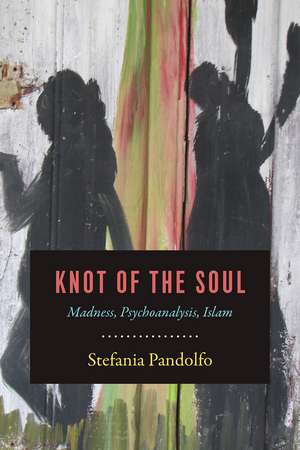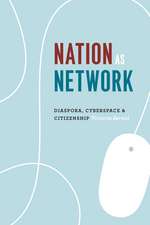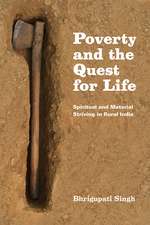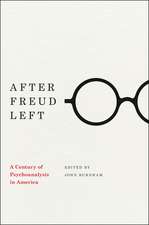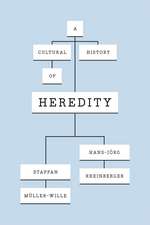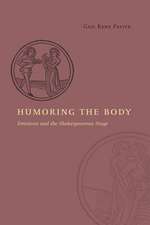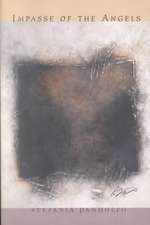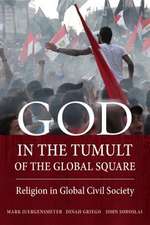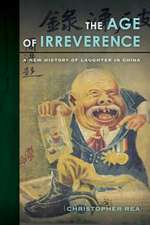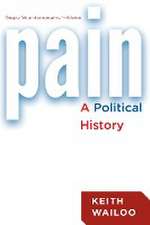Knot of the Soul: Madness, Psychoanalysis, Islam
Autor Stefania Pandolfoen Limba Engleză Paperback – 11 iun 2018
Through a dual engagement with the unconscious in psychoanalysis and Islamic theological-medical reasoning, Stefania Pandolfo’s unsettling and innovative book reflects on the maladies of the soul at a time of tremendous global upheaval. Drawing on in-depth historical research and testimonies of contemporary patients and therapists in Morocco, Knot of the Soul offers both an ethnographic journey through madness and contemporary formations of despair and a philosophical and theological exploration of the vicissitudes of the soul.
Knot of the Soul moves from the experience of psychosis in psychiatric hospitals, to the visionary torments of the soul in poor urban neighborhoods, to the melancholy and religious imaginary of undocumented migration, culminating in the liturgical stage of the Qur’anic cure. Demonstrating how contemporary Islamic cures for madness address some of the core preoccupations of the psychoanalytic approach, she reveals how a religious and ethical relation to the “ordeal” of madness might actually allow for spiritual transformation.
This sophisticated and evocative work illuminates new dimensions of psychoanalysis and the ethical imagination while also sensitively examining the collective psychic strife that so many communities endure today.
Knot of the Soul moves from the experience of psychosis in psychiatric hospitals, to the visionary torments of the soul in poor urban neighborhoods, to the melancholy and religious imaginary of undocumented migration, culminating in the liturgical stage of the Qur’anic cure. Demonstrating how contemporary Islamic cures for madness address some of the core preoccupations of the psychoanalytic approach, she reveals how a religious and ethical relation to the “ordeal” of madness might actually allow for spiritual transformation.
This sophisticated and evocative work illuminates new dimensions of psychoanalysis and the ethical imagination while also sensitively examining the collective psychic strife that so many communities endure today.
Preț: 308.72 lei
Nou
Puncte Express: 463
Preț estimativ în valută:
59.07€ • 61.68$ • 48.78£
59.07€ • 61.68$ • 48.78£
Carte tipărită la comandă
Livrare economică 15-29 aprilie
Preluare comenzi: 021 569.72.76
Specificații
ISBN-13: 9780226465081
ISBN-10: 022646508X
Pagini: 384
Ilustrații: 11 halftones
Dimensiuni: 152 x 229 x 28 mm
Greutate: 0.54 kg
Ediția:1
Editura: University of Chicago Press
Colecția University of Chicago Press
ISBN-10: 022646508X
Pagini: 384
Ilustrații: 11 halftones
Dimensiuni: 152 x 229 x 28 mm
Greutate: 0.54 kg
Ediția:1
Editura: University of Chicago Press
Colecția University of Chicago Press
Notă biografică
Stefania Pandolfo is professor and director of the UC Berkeley Medical Anthropology Program on Critical Studies in Medicine, Science, and the Body at the University of California, Berkeley. She is the author of Impasse of the Angels.
Cuprins
Introduction
Part I. Psychiatric Fragments in the Aftermath of Culture
1. Testimony in Counterpoint
2. The Hospital
3. The Jinn and the Pictogram: “The Story of My Life”
4. The Knot of the Soul (or the Cervantes Stage)
Interlude. Islam and the Ethics of Psychoanalysis
Part II. The Passage: Imagination, Alienation
5. Taʿbīr: Figuration and the Torment of Life
6. The Burning
Part III. The Jurisprudence of the Soul
7. Overture: A Topography of the Soul in the Vertigo of History
8. Faqīh al-nafs: The Jurist of the Soul
9. Shariʿa Healing: “Knowledge of the Path to the Hereafter”
10. Prophetic Medicine and the Ruqya
11. The Jouissance of the Jinn
12. The Psychiatrist and the Imam
13. Black Bile and the Intractable Jinn: Threshold of the Inorganic
14. The Argument of Shirk (Idolatry)
15. Extimacy: The Battlefield of the Nafs
16. The Writing of the Soul: Soul Choking, Imagination, and Pain
17. Concluding Movement: The Passion of Zulikha, a Dramaturgy of the Soul
Acknowledgments
Notes
Index
Recenzii
“Knot of the Soul combines sensitive ethnography, Islamic practices of healing, and suggestive encounters with psychiatry and psychoanalytic theory. Pandolfo has written an unusually insightful work that serves as an excellent example of the riches that these three different traditions, in conversation with one another, can offer our contemporary understanding of madness and reason. It deserves to be widely read and pondered.”
“Knot of the Soul is a stunning breakthrough book. Creating its own genre—not by mixing existing genres but by seeing beyond their divisions—it exposes the profound homologies between Sufi philosophy and psychoanalysis and the structural madness that haunts the subject, for good as well as ill. Beautifully written and conceptually precise, it cannot but convince readers of the timeliness and inestimable value of these marginalized discourses.”
“Reading this book is both an intellectual and an aesthetic experience. Pandolfo’s subtle and nuanced rendering of the meandering life of reason, unreason, terror, and hope is unparalleled in anthropological and psychiatric literature. Her deep knowledge of Islamic theology and poetry, her mastery over anthropological and psychoanalytical theory, and, above all, her capacity to listen, show what an anthropological devotion to the world might mean.”
